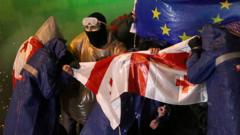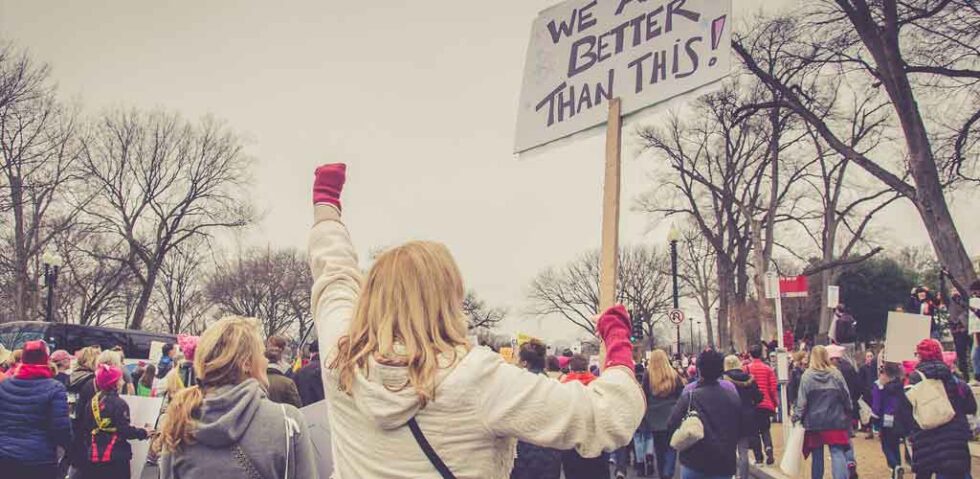Georgia is experiencing widespread protests following the ruling party Georgian Dream’s decision to suspend talks on joining the European Union, leading to four consecutive nights of demonstrations and a series of high-profile resignations.
Prime Minister Irakli Kobakhidze denied suspending EU accession talks, despite his party previously stating they would postpone discussions until the end of 2028. The government accused the EU of “blackmail” and rejected calls for new elections.
Tens of thousands of pro-EU protesters have taken to the streets in multiple cities, with tensions escalating during nighttime demonstrations. Riot police responded to protesters with water cannons, and numerous individuals were detained, including opposition leader Zurab Japaridze. The interior ministry reported 21 injured officers, while the president, Salome Zourabichvili, claimed arrested protesters suffered beatings and serious injuries.
The protests reflect growing frustration with the government’s increasingly authoritarian approach. The United States has already suspended its strategic partnership with Georgia, and the EU has warned of potential consequences. Several ambassadors, including Georgia’s ambassador to the US, David Zalkaliani, have resigned, and hundreds of civil servants and over 3,000 teachers have condemned the government’s decision.
Journalists have been particularly targeted during the protests, with dozens experiencing violence, including beatings and pepper spray attacks. Georgia’s human rights ombudsman, Levan Ioseliani, condemned the brutality, while Kobakhidze blamed opposition groups for the violence.
Natalie Sabanadze, a former EU ambassador now at Chatham House, sees these protests as a significant turning point, comparing the current civil disobedience to pre-revolutionary Georgia in 2003. Protesters argue that the government is attempting to move Georgia back into Russia’s sphere of influence, despite overwhelming public support for EU membership.
The government has been accused of adopting Russian-style laws targeting civil society groups and LGBT rights. Georgia, with a population of 3.7 million, already has 20% of its territory under Russian military occupation.
Protesters remain determined, with many expressing concern about their country’s future. One protester, Salome, stated she wants a different future for her child, free from continuous political unrest and potential Russian influence.
The political crisis continues to deepen, with damaged relations between the Georgian government and its Western partners. The EU’s foreign policy chief, Kaja Kallas, has warned of direct consequences, and the US strategic partnership suspension will have significant implications.
As the protests persist, the government remains defiant. Prime Minister Kobakhidze dismissed the president’s call for new elections, noting her impending departure from office on December 29th.
The situation remains volatile, with uncertainty surrounding Georgia’s political and constitutional future, and the potential long-term consequences of the government’s current stance on EU integration.




